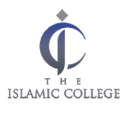ISC111 – Research Methodology for Islamic Studies
Course Overview
Module Info
- Syllabus
- Outcomes
- Strategy
- Material
sYLLABUS
- Research methods particular to Islamic Studies
- Research methodology and Quran
- Critical thinking skills
- Essay writing skills for academic purposes
- Research process and essay structure
- Preparation of a research proposal
- Literature review and its role in academic research
- Writing a research report
- Presentation of a research report and peer reviewing techniques
- Using the internet and software for research in Islamic studies
- Major resources in Islamic studies
Learning Outcomes
Knowledge
On completion of this module, the successful student will be able to:
- Examine the requirements for researching and presenting a project. (A1, A5)
- Identify the main sources in various aspects of Islamic studies. (A2)
Skills
This module will call for the successful student to:
- Identify and provide an appropriate structure and style for writing an essay. (B6, C1, C3, C6, D3)
- Select an appropriate citation and referencing style for academic writing. (B6, C2, D5, D6)
- Employ suitable research methods to investigate a subject matter in the field of Islamic studies (C3, C5)
- Demonstrate awareness of reflective learning by expressing considered thoughts and ideas in the form of a self-reflective journal (D1)
Learning, Teaching and Assessment Strategy
Alongside lectures and seminars, students are expected to develop their learning through research and preparation leading to a research based essay. Seminars are used to debate and explore specific issues while the use of questioning and debate in class ensures that students are constantly engaged and take an active role in the learning process. All students are assigned a mentor from amongst the third year Project students who will give them advice and support relating to their coursework.
Assessment Mode
1. Formative Assessment:
Formative assessment will be Module leader led seminars and workshops, students will discuss and presented topics. The module leader will regularly give feedback to student regarding the progress of their coursework, a draft copy of the completed coursework need be handed in to the module leader before the 10th learning week as part of the formative learning process. Students will also be asked to complete and submit a weekly reflective learning exercise based on the teaching and learning, student will be provided feedback regarding it and discuss the student’s progress and areas for future exploration. This is based on their formative learning process and students will be encouraged to complete these tasks to improve learning and satisfaction with the module.
2. Summative Assessment:
Summative assessment for this module is by means of coursework and self-reflective journal. Students are required to write a coursework of 2,500 words on a subject of their own choice in the field of Islamic studies in which they are expected to demonstrate their learning of research methods and written presentation skills (Outcomes 1, 2, 3, 4, 5). Students will be further required to produce three self-reflective journals of about 500 words each. The journal is expected to reflect personal development and discussions in the class. Every journal must be submitted every four weeks. The journal is a necessary component of the module and part of the overall assessment. (Outcome 6).
Assessment Weighting
Coursework: 70%
Journal: 30%
Learning Material
Core readings
- Booth, W.C., Colomb, G.G., Williams, J.M. (2003). 2nd ed. The Craft of Research. Chicago and London: The University of Chicago Press.
- Nicholas Walliman, N. (2017) Research Methods: The Basics: 2nd edition
- Routledge. Cottrell, S. (2017) Critical Thinking Skills: Effective Analysis, Argument and Reflection,
- Macmillan International Higher Education,
- Cottrell, S. (2011) Critical Thinking Skills: Developing Effective Analysis and Argument, Palgrave Macmillan


